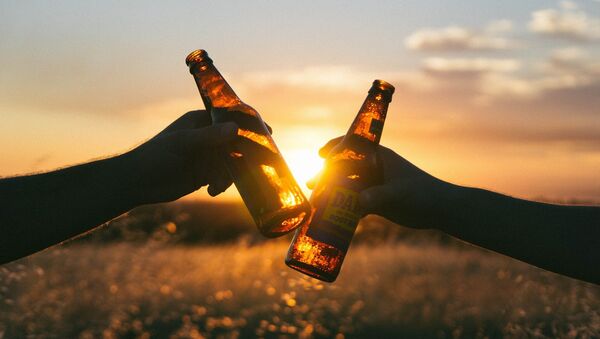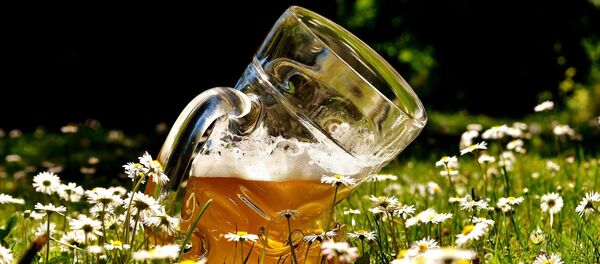So has the lockdown been as boozy as initially expected? Or could those Brits that consume it change their relationship with alcohol?
According to Duane Mellor, a dietitian and a senior teaching fellow at the Aston Medical School, there is a recent tendency for those Brits who drink alcohol to choose zero- or low-alcohol beer amid a general awareness of the negative effects of significant alcohol consumption.
Sputnik: Can you tell me what are ‘NoLo’ [no-alcohol] beers?
Duane Mellor: A no-alcohol beer is one with typically less than half a percent of alcohol. So the low alcohol is generally a number of definitions if we're looking at them around the world. But generally it's around about 1% or below, so it's very low. It's not your mild beer, that would tend to be about 2-3%, it's not a regular beers which are 3-4% or definitely not your doubles and triples which are 6-9%. So you're talking about right at the low end - 1% or less, typically.
Sputnik: Outside of being low alcohol, what further benefits come from these beverages?
Duane Mellor: So first of all, there's one potential downside that needs to be looked at. Normally in the brewing process, you turn your sugar to alcohol. If you've got less alcohol, you could have more sugar. So some of the new products are looking to actually brew the alcohol from the sugar then remove the alcohol, a bit like distillation, you leave the beer and the flavour behind. So the sugar can be a problem. What is interesting, depending on how it's fermented and the types of yeasts that are used, because yeast produces B vitamins, things like B 12, which normally come from meat or dairy products. Also depending on the water, that can contain various minerals as well.
One of the German wheat beers that is low alcohol is actually marketing itself as an isotonic drink, almost like a sports drink. So there is potential for these to be in there, whether a lot of these products could be engineered to be just a low alcohol beer and they don't have these health qualities. But as we get more craft beers and people are becoming more interested in low alcohol beer, and we know that's happened through this year, there will be more of these products that will have more than the malt and the barley, not necessarily the sugar, but also some of the hops which have some interesting compounds in there, which are potentially the same as the ones you get from fruit and vegetables. So these polyphenols, which we know can be good for our health.
Sputnik: What has led to the increase in popularity for these products?
Duane Mellor: I think people are generally aware that too much alcohol is not good for their health but they still want to have a grown up drink when they're out and socialising or even at home, having a barbecue or a meal. Now they're asking "What's the alternative to beer that's not alcoholic?". It has been soft drinks which have been quite sweet. People may not want that sweet flavour so the low alcohol beers are coming up in popularity but also things like some of the kombuchas and those fermented tea type drinks are trying to move into the pub space so brewers thinking if we have brewed drinks that are low alcohol, why can't we do that with beer and there's an increased growth in craft type version these hoppy flavour rich low alcohol beers. People want an alternative to alcohol, they want the flavour, they want the taste, they want that feeling of fitting in but not necessary the alcohol because they may be driving or they may be concerned about the health effects.
Sputnik: Could we see these products marketed to a new kind of consumer in the future?
Duane Mellor: I think there's potential, because there is some resistance from some beer drinkers who would never touch a low alcohol beer but i think with the interest in things like the kombucha and those fermented products and fermented foods being associated with improved health, I think there is definitely a niche in there that we can almost have a British version of kombucha which will be a beer or you're going for sort of a Belgian version, which could be like the sour beers, these fruit beers but they're low alcohol. So I think there's definitely a potential there for rebranding and moving away from the beer title because that just puts some people off.


